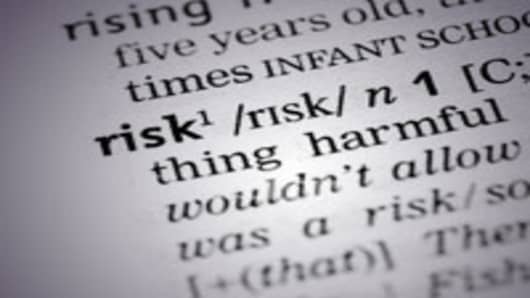Markets will enter a new "risk-off" phase in 2011 that will last into 2012 and maybe even 2014, according to Nomura’s Bob Janjuah.
"We strongly believe that the next major secular trend, which will likely begin in 2011 and last through 2012 and maybe even into 2014, will be a rising cost of capital, risk-off phase where the weakest balance sheets entities will underperform the most."
Characterizing the market as either "risk-on" or "risk-off" is the starting point for Janjuah’s asset allocation work, and having watched the Fed-inspired risk-on phase, he believes the good times are about to come to an end for bulls.
“A rising cost of capital period is, broadly, a risk-off phase, where the strongest balance sheet entities (be they corporate, financial, government or consumer) should relatively (at least) outperform,” said the co-head of cross-asset allocation in notes prepared for an interview with CNBC.
“A falling cost of capital phase is broadly about risk-on and favors the weakest balance sheet entities. The period from 2007 to early 2009 was a rising cost of capital, risk-off phase. Early 2009 to the present has been a falling cost of capital risk-on phase, albeit punctured by some brutal sell-offs that ultimately forced the Fed into QE2.”
“We strongly believe that the next major secular trend, which will likely begin in 2011 and last through 2012 and maybe even into 2014, will be a rising cost of capital, risk-off phase where the weakest balance sheets entities will underperform the most,” said Janjuah
Known as a skeptical strategist, Janjuah believes the issues that led to the 2007-2009 financial crisis are still present and actually getting worse in places.
“Namely very large global, regional, sectoral and national imbalances (in areas such as incomes, earnings, wealth, trade and financial health); excessive levels of, and excessively narrow concentrations of, debt primarily in Western economies; and significant fat tail risks in the market when it comes to the price of and the levels of assumed volatility.”
“It seems that collectively we learnt nothing from the 2007-09 experience, and the apparent solution to the crisis has been to implement more of the same policies that caused the mess in the first place,” said Janjuah.
With the Euro Zone crisis likely to continue in his view, the other key questions for the global market are whether investors get a hard or soft landing in emerging markets and the extent of below-par growth in the developed world. Throw in uncertainty over the impact of the Japanese disaster and the ongoing problems in the Middle East, and investors are left with a lot of uncertainty.
Fed Running out of Credibility
Having driven the cost of capital lower via quantitative easing, Janjuah believes the US central bank is fast approaching the limits of its credibility.
Fed Chairman Ben Bernanke and the FOMC are, in Janjuah’s opinion, asking investors to lever up at the wrong price, to take on risk at the wrong price; and to do this at precisely the wrong time in the business cycle.
“For this to succeed, the Fed needs to convince investors it can keep the QE-fed Ponzi growing forever, permanently misprice the true cost of capital without any negative or unintended consequences. The US housing market seems quite clearly to be rejecting this proposition, but the equity market in particular has not,” said Janjuah.
“History shows no successful precedent, so under the hard landing path, when the cost of capital and pricing of risk normalize, as we would fully expect them to, asset prices, especially equities, should be hit very hard.”
“We see this starting in the third quarter 2011, and likely lasting through 2012/2013 and maybe even into 2014, with QE3 becoming the central risk/problem, rather than the apparent solution.”
“In this significant down move we should expect new lows in weak balance sheet developed or emerging market equities (not strong balance sheet countries).”
“Assuming that the QE3 option is eventually exercised and assuming it does what we fear to the credibility and status of the US, the US dollar and US Treasuries, then we think the result, most likely at some point between 2012 and 2014, will be major forex regime changes and significant paradigm shifts in global forex markets,” said Janjuah.
“As these changes and shifts occur, gold could perform very well, as could other scarce physical assets (possibly super prime real estate). And the highest quality nominal corporate assets—top quality equities in other words—may at least on a relative basis perform fairly well.”



